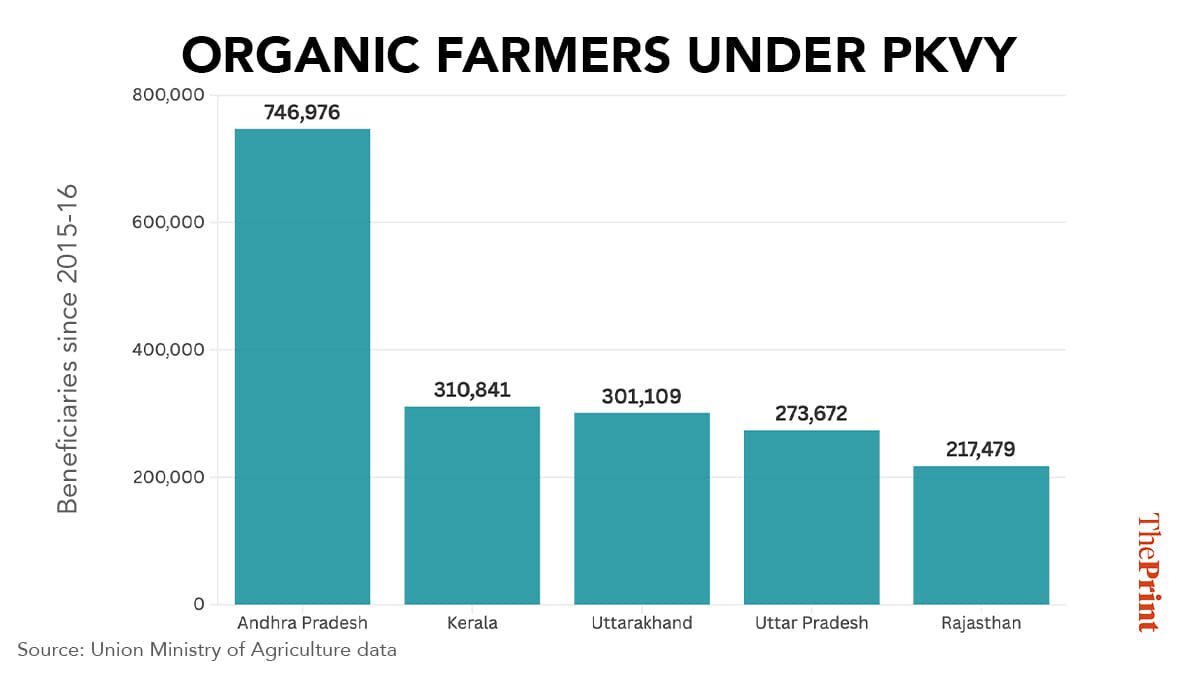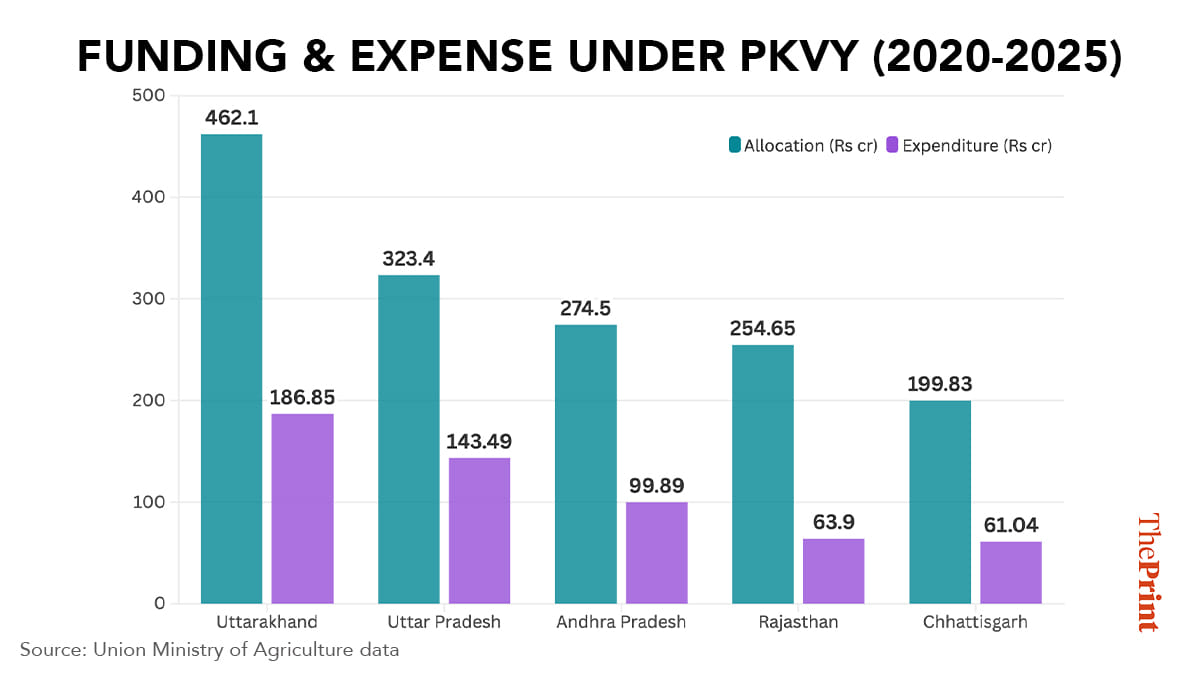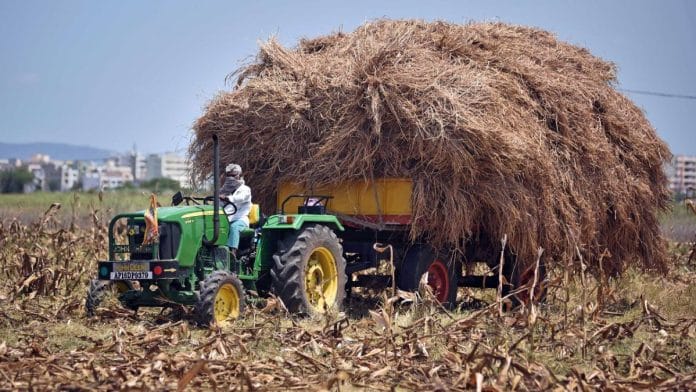New Delhi: More than 7 lakh farmers in Andhra Pradesh have benefited from the Centre’s Paramparagat Krishi Vikas Yojana (PKVY), which promotes organic farming, shows data from the Union Ministry of Agriculture presented in the Lok Sabha this week.
The scheme was launched in 2015 in a bid to increase and promote organic agriculture among rural farmers, consumers, and traders by forming clusters of organic farmers in villages.
Under it, farmers are given Rs 31,000 per hectare over three years for their needs from farming equipment to marketing, branding, and even training and capacity-building.
According to the agriculture ministry data, Andhra Pradesh, Kerala, Uttarakhand, Uttar Pradesh and Rajasthan have had the highest number of beneficiaries under the scheme since 2015-16. However, while the other states have 2-3 lakh beneficiaries, Andhra Pradesh has a higher number at 7,46,976 organic farmers. The scheme has covered 3.61 lakh hectares in the southern state.

“One of the reasons behind this is that when the scheme started off, Andhra Pradesh already had a base of organic farmers and had the grassroots capacity to implement the scheme,” Ashish Gupta, director of organic food enterprise Jaivik Haat and an agricultural expert, told ThePrint.
The states where relatively less farmers have benefited include Punjab and Haryana. While Punjab has around 6,676 beneficiaries, Haryana wasn’t even listed in the beneficiary data shared by the ministry.
Data shared about monetary allocation and state expenditure for the 2020-2025 period showed that Haryana spent nothing from the Rs 12.09 crore funds allocated to it under the PKVY over five years. Madhya Pradesh was also found to have made little progress in the push towards organic farming over the last five years, based on spending data.
“Post the green revolution, Haryana and Punjab did not have policies for organic farming,” said Gupta. “Now, they’re changing and but still have to play catch up with other states which have historically pushed organic farming.”
According to Gupta, PKVY is the first-ever national-level scheme to promote organic farming in states in an “end-to-end” manner, from production to processing of organic produce.
The funds are disbursed to the state governments and the scheme is implemented at the district level. Each year, the allocation for a state depends on the requirements submitted in an annual action plan by it which provides information about how much money is being utilised where.
The allocations are thus determined based on the needs of the state.
Also Read: How to climate-proof Indian agriculture through innovation – from fertiliser to farmer networks
Where states stand
Ministry data on allocation and expenditure under the PKVY from 2020 to 2025 shows that states like Uttar Pradesh, Uttarakhand and Andhra Pradesh had the highest allocation and spending, which is reflected in their high beneficiary numbers.

Others like Madhya Pradesh, Goa, Haryana, Telangana and Jharkhand have spent nothing under PKVY in the last five years. While Goa, Haryana, Telangana, and Jharkhand were allocated between Rs 10 crore and Rs 30 crore, Madhya Pradesh was allocated Rs 230 crore in the past five years and yet did not spend any.
Between 2015 and 2025, Madhya Pradesh has had 1,16,360 beneficiaries under the PKVY. But data indicates that over the past five years, the state’s implementation of the scheme may have gone off track.
According to another parliamentary answer from April, between 2022 and 2025, MP conducted only seven training workshops covering 100 farmers. In comparison, Maharashtra conducted 2,786 workshops for over 1 lakh farmers in the same period.
Prior to the PKVY, other forms of organic farming such as zero-budget natural farming were popular in states like Andhra Pradesh and Kerala.
According to Gupta, the PKVY initiative aimed to bring new farmers into organic practices as well as increase access of current organic farmers to the Participatory Guarantee Scheme.
The scheme is essentially a quality assurance system developed by the government to certify organic produce in India. It is a participatory scheme that involves farmers and other stakeholders in the certification process, rather than bringing in third-party certifiers.
(Edited by Nida Fatima Siddiqui)
Also Read: Indian agriculture is ‘a walled-off garden stuck in the 60s’. Private investment is the answer






